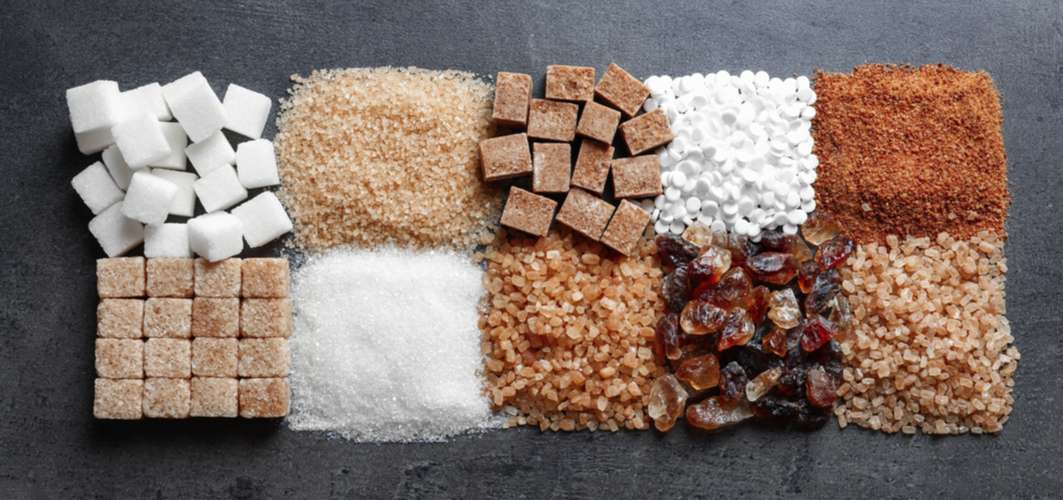Diabetes Management
Avoid or Limit These Common Foods with Hidden Sugar
5 min read
By Apollo 24/7, Published on - 07 January 2021, Updated on - 15 October 2023
Share this article
2
77 likes

Foods with hidden sugar in them
-
Carbonated beverages
-
Fruit juice
-
Breakfast cereal
-
Sauces and ketchup
-
Yoghurt/Curds
-
Bread
-
Protein powder and bars
-
Alcoholic drinks
Why is high sugar harmful to health?
- A study published in the journal JAMA Internal Medicine stated that people who consume a high-sugar diet are at an increased risk of dying from heart disease. In this study, the scientists analysed the subjects for 15 years and found that people who got 17% to 21% calories from added sugar in their diet had a 38% increased risk of dying from heart diseases compared to people who consumed 8% calories as added sugar.
- Another study conducted at the Johns Hopkins Bloomberg School of Public Health and University School of Medicine concluded that people who consume high levels of sugary carbonated beverages are at increased risk of developing coronary artery disease despite having no medical history of cardiovascular disease, cancer or diabetes.
- Studies reveal excessive sugar consumption can lead to obesity and metabolic syndrome, type 2 diabetes, hypertension, high cholesterol, non-alcoholic fatty liver and dental problems (cavities and plaque deposition).
Conclusion
Diabetes Management
Consult Top Diabetologists
View AllLeave Comment
Recommended for you

Diabetes Management
Sugar Substitutes: Is It Safe for You?
While sugar substitutes are helpful to manage conditions like diabetes, the consumption of excessive amounts can still raise blood sugar and add calories to the body.

Diabetes Management
Keeping an Eye on Diabetic Retinopathy
Diabetic retinopathy is a complication arising from uncontrolled blood sugar levels. The increased blood glucose levels damage the blood vessels in the retina. It progresses through stages: background retinopathy (micro-aneurysms), and proliferative retinopathy (abnormal blood vessel growth and vision loss). Regular screenings and lifestyle modifications can help prevent or manage diabetic retinopathy.

Diabetes Management
Genetic Testing May Help Determine the Cause for Type 1 Diabetes
Type 1 diabetes is an autoimmune disorder where the immune system attacks and destroys insulin-producing beta cells in the pancreas. A recent study suggests a specific dysfunction in exocrine cells of the pancreas may play a role in the development of type 1 diabetes. This finding expands our understanding of the disease and could potentially lead to new treatment approaches.
Subscribe
Sign up for our free Health Library Daily Newsletter
Get doctor-approved health tips, news, and more.
Visual Stories

8 Fruits That are Incredibly Healthy for Diabetes
Tap to continue exploring
Recommended for you

Diabetes Management
Sugar Substitutes: Is It Safe for You?
While sugar substitutes are helpful to manage conditions like diabetes, the consumption of excessive amounts can still raise blood sugar and add calories to the body.

Diabetes Management
Keeping an Eye on Diabetic Retinopathy
Diabetic retinopathy is a complication arising from uncontrolled blood sugar levels. The increased blood glucose levels damage the blood vessels in the retina. It progresses through stages: background retinopathy (micro-aneurysms), and proliferative retinopathy (abnormal blood vessel growth and vision loss). Regular screenings and lifestyle modifications can help prevent or manage diabetic retinopathy.

Diabetes Management
Genetic Testing May Help Determine the Cause for Type 1 Diabetes
Type 1 diabetes is an autoimmune disorder where the immune system attacks and destroys insulin-producing beta cells in the pancreas. A recent study suggests a specific dysfunction in exocrine cells of the pancreas may play a role in the development of type 1 diabetes. This finding expands our understanding of the disease and could potentially lead to new treatment approaches.